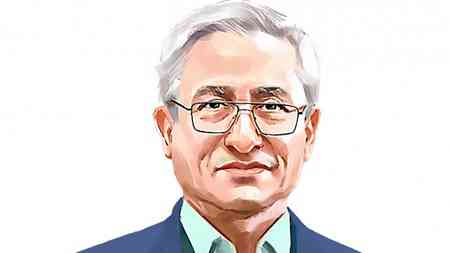Bangladesh’s watchdog institutions tempted into mimicry: Report
As Bangladesh approaches the February 2026 elections, the nation’s institutions, born to resist excess, appear to have been tempted into mimicry, said a media report on Sunday.

Dhaka, Nov 2 (IANS) As Bangladesh approaches the February 2026 elections, the nation’s institutions, born to resist excess, appear to have been tempted into mimicry, said a media report on Sunday.
The Anti-Corruption Commission, created in 2004 to combat graft, now evokes irony. Since a 2013 amendment requiring government permission to investigate officials, the ACC has been seen less as a watchdog and more as a lapdog, wrote Zahid Hussain, former chief economist of The World Bank, Dhaka Office, in an article in The Business Standard.
The Commission growls occasionally, but only when permitted — and never at the powerful. Its leash is held by the very hands it was meant to bite, said the article headlined “Bangladesh's Gilgamesh problem”.
While pointing to oversight bodies like the ACC, Parliament, and Bangladesh Bank showing political capture, the report said that the Parliament, structurally empowered to oversee the executive, has become a stage for scripted rituals.
Budget sessions pass with minimal scrutiny. Committees malfunction by default. Opposition voices are either absent or performative. Parliament reenacts Gilgamesh — the ancient king of Uruk who ruled with unchecked power — not by wielding power, but by echoing it, said the report.
Bangladesh Bank, once a guardian of financial integrity, has drifted into political orbit. In 2013, it approved nine new banks based on proximity to power. Regulatory forbearance — on loan rescheduling, capital adequacy, and enforcement — has been selectively applied, it said.
A 2025 ACC probe implicated three former governors in major financial scandals, from the Hallmark scam to the reserve heist, wrote Hussain.
The Gilgamesh problem is not confined to formal institutions. Professionals, media, and civil society — those outside the state — are not immune. Many enter public life with reformist zeal, only to be seduced by access, prestige, and proximity to power.
Policy briefs become endorsements. Silence becomes strategy. The wildness of civic resistance is tamed by the lure of belonging. Enkidu's temptation lives not just in institutions, but in us, said the report.
This is the imitation game. Oversight becomes performance. Resistance becomes ritual. Reformers become reenactors. The system doesn't crush dissent — it co-opts it, wrote Hussain.
Escaping the Gilgamesh trap requires more than technical fixes. Yes, we need tenure limits, rotating leadership, digital transparency, and tamper-proof procurement. But these are insufficient without a deeper shift in how reform is imagined and narrated, said the report.
As Bangladesh approaches the February 2026 elections, voters must demand systems that reward restraint over proximity, integrity over spectacle, the report said.
--IANS
rch/dan


 IANS
IANS 










